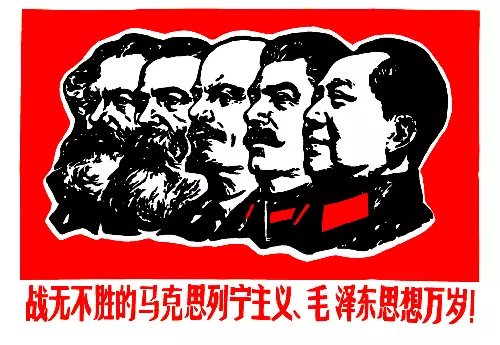My own knowledge on communism and how it was practiced by the USSR and Mao's China is severely lacking, but I work with a colleague who had some questions (most of them familiar, but I don't personally know the answer) and I said I'd ask some folks who'd know better; his questions were:
-
Did people all have the exact same salary regardless of job?
-
In positions that were similar and worked in close proximity, for example nurses and doctors, what were the differences in their salary if they had different salaries according to job? Even if a doctor made more than a nurse, was it noticeably so or only minorly? Were these salaries comparable to American salaries?
-
If a colleague was completely lazy and did no work, did he get paid a salary, and in the same amount as hard working colleagues?
-
I told him that under Mao, landlords were given the option of handing over their lands/apartments/additional housing and were executed if they refused. Was this accurate or was I mistaken? I'd read something here I think that said as much, or perhaps saw a youtube video about it but I thought I'd get a concrete answer to take back to him.
-
He was saying that without a profit incentive, people won't innovate; what innovations from the USSR and Mao's China could I point to? I remembered some major stuff later on myself that were released for free and brought no profit to their creator, for example linux, but forgot to mention it at the time.
-
Could someone start a business if he had an idea he wanted to pursue. I told him the government would own the business and himself and the other people working at the company would be government employees, but not sure how true this is.
-
I told him people like farmers were effectively government employees and the produce they grew was owned by the government and rationed to the people, again, not sure how strictly true this is.
-
If a person didn't want to work at all, just stay home and do nothing at all, what does the government do about it? Does he still have housing, medical care, payment to care for his family and himself, and a salary?
-
Why did China begin to transition away from the communism it practiced?
Could you folks also please give me references to the answers to provide him with?

just some thoughts from my readings. if anyone has corrections ill be happy to edit.
I would be wary of the idea of innovation for innovations sake. If you do want to point to things, I'd point to the USSR space program. There are also numerous nobel prize winners for specific scientific discoveries. Also the internet in the US was government funded. The basic idea of innovation in capitalist mode of production is that the risks of development are taken on by the public (taxes paid for research, eg. vaccines), but the technology and profits are appropriated by the capitalist class.
Depends when, but in later stages of the USSR you could make a small business. But to me the question is: what exactly do you want to pursue? If you have an idea how to improve a specific product you could petition to work at that specific department. Making new products would be under the jurisdiction of the relevant GOSPLAN department.
Essentially correct, except there were complex (and patchwork) systems in place for purchasing and distribution of produce.
There were penalties in place if you refused to work (fines, visits by authorities). You dont lose housing (you are always assigned one) or medical care (free) or payment for family (women worked in the USSR too + childcare was available), but you could get in serious trouble. The question here is also: why would you refuse to work? If you didn't like your workplace you could fill paperwork to be reassigned. You had vacation days etc. So a refusal like that would probably be seen as a sign of distress.
Not easy to answer in a paragraph, but the basic gist is that after Mao the CPC changed quite a bit and saw the introduction of foreign capital and market reforms as a necessity for progress. I think the current CPC position is that they are building up productive forces before moving on to the next stage of socialism.